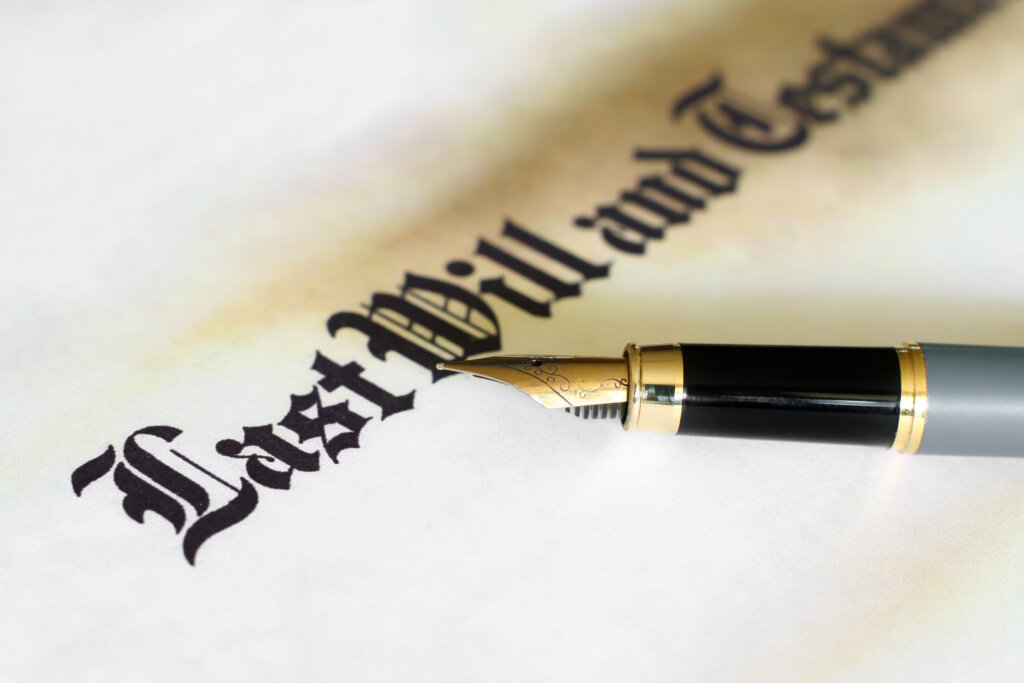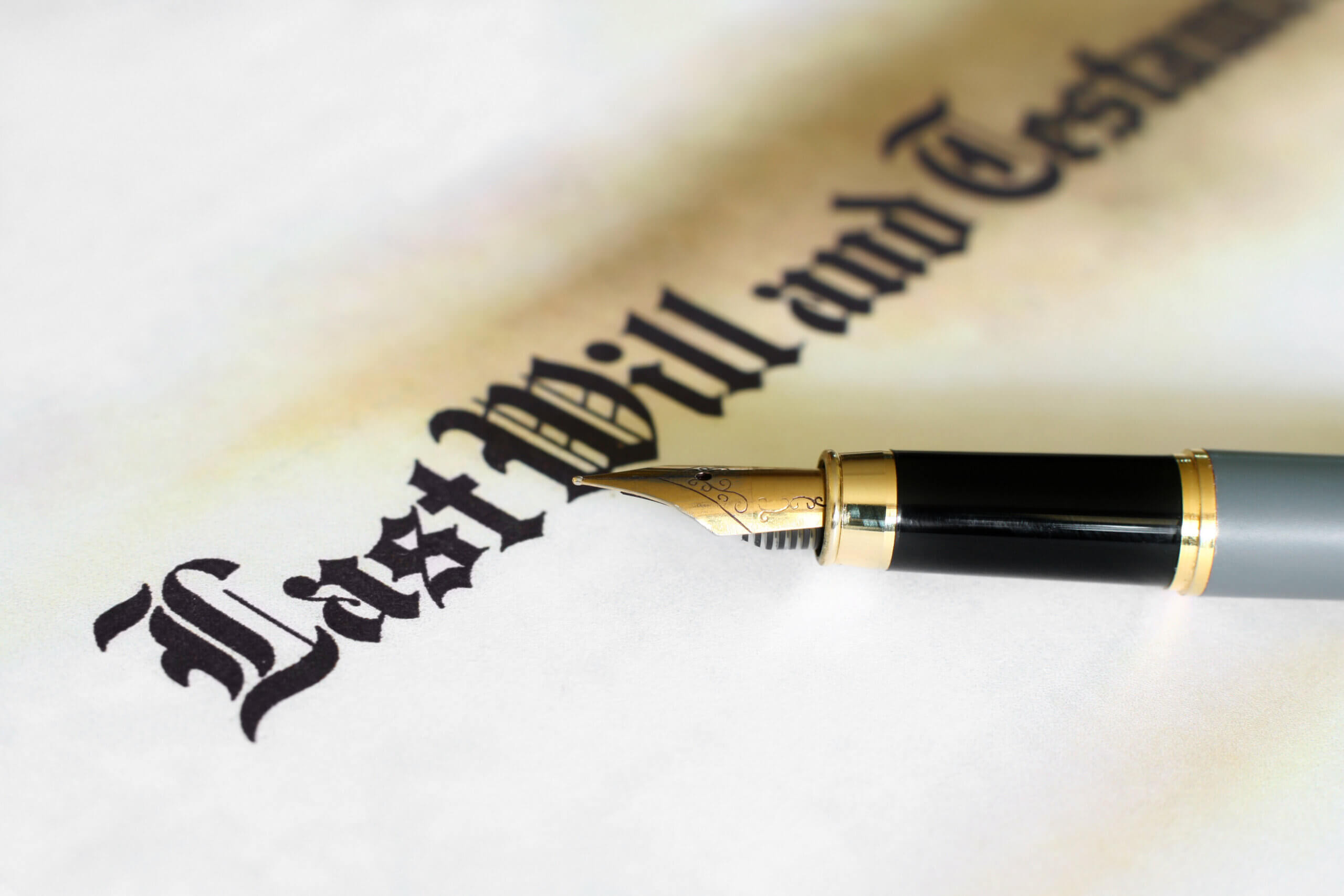Written By:
 Scott Glatstian
Scott GlatstianYour Dedicated & Trusted Legal Team
3 Generations & 100+ Years of Combined Legal Experience
The turmoil of the past few years has led many people to start thinking more seriously about their future. In particular, studies are showing that many people have responded to the global pandemic by starting to consider an estate plan.
What is an estate plan? Why is it good to have one? Do I really need one? These questions are just the tip of the iceberg when it comes to the many things that need to be considered when creating a proper estate plan. As technology continues to advance, there are more and more options available. In particular, there are several online legal service providers that offer templates that will construct an estate plan in an automated way and for a low price.
The question then is this – should you use one of these online legal service providers for your estate plan? While they are certainly the cheapest option and can also be easy to use, for many people the prospect of creating such an important document requires more consideration than just checking off some boxes on an online form.
Before you decide to create your estate plan online, read on below to gain a better understanding of what goes in a properly prepared estate plan, the important questions that one needs to consider in crafting it, and the pitfalls of using an online service to create it.
What Are the Three Elements of a Proper Estate Plan?
A thorough estate plan will have three elements to it: a last will and testament, an advance directive for healthcare, and a power of attorney. Here are the basics of what you’ll need to know about each of them.
A last will and testament is what most people consider when thinking about making an estate plan. A last will is a legal document dictating a person’s final wishes regarding their assets. It outlines what a person wishes to do with any possession, financial accounts, or custodial agreements, specifically the quantity of each asset and who receives it. An executor is chosen in the will to ensure that these instructions are followed.
A good estate plan will also include an advance directive. This document names someone to make healthcare decisions on one’s behalf and provides them with a set of medical instructions in the event that the person is incapacitated and unable to make these medical decisions on their own. For example, the advance directive will include things like whether or not someone would like to remain on life support and under what circumstances or for how long. This document saves an individual’s loved ones from making these difficult decisions or getting involved in court battles based on their choices.
Lastly, the power of attorney (“POA”) is a legal document that authorizes someone to handle an individual’s finances in the event they are unable to do so themselves. The POA is important in case of illness, disability, or some other inability to sign documents. This allows someone the person trusts to make important financial and property decisions if they aren’t in a healthy state of mind to do so, or they are not available for some other reason. The POA’s power can be comprehensive or limited, and it can go into effect immediately or only when a person becomes incapacited.
So What Do I Need to Consider for My Plan?
Now that we’ve outlined what documents are needed to create a proper estate plan, it begs the question – what does one need to know about how these documents operate and what language needs to be included within them? It’s impossible to cover all the scenarios that one might encounter when creating an estate plan, but a few examples may provide some clarity as to the many and very different possibilities one will need to consider when creating their plan.
Last Will and Testament
For the last will, let’s talk about a fictional person we’ll call Allison. Allison has three children and four grandchildren. She wants to give all of her estate equally to her children. But what happens if one of them passes away before she does? Will that share go to the other children, or her deceased child’s children (her grandchildren)? Such a question involves the legal terms per capita and stirpes. These terms define how an inheritance is distributed in the event the intended beneficiary is not alive at the time of the testator’s (the will writer’s) death. If Allison doesn’t include this language in her will, the state’s law will default. An experienced attorney can explain how these two methods of distribution work and help Allison decide which one works best for her. Without an attorney she will be left on her own to figure this out.
In another scenario, what if Allison wills her house to one of her children, but ends up moving without updating her will? Does her child receive the new house or does the gift lapse? Obviously the answer to this question can have tremendous consequences for Allison and her heirs. Once again it would be best for Allison to speak with an attorney and discuss her options prior to creating an estate plan with this type of bequest.

Advance Directive
Advanced directives present their own set of complications. Hospitals, state websites, and different legal service providers can provide someone with a short template to fill out in this regard, but these forms are almost always lacking any detail or guidance on how someone should complete them. Do you want to receive all life sustaining treatments? Do you have any religious or other restrictions when it comes to medical care? What if you’re willing to have a feeding tube inserted in your body, but only for a specific period of time?
Without proper guidance, creating an advance directive that accurately reflects your wishes regarding healthcare treatment can be very difficult. Experienced attorneys will ask a client pointed questions and have them consider various scenarios that will help them determine exactly how this document should be crafted. Online service providers simply can’t offer this level of assistance.
It’s more important now than ever to specify as many scenarios as possible in your advance directive. If you specify “No ventilator” but don’t consider the context of the COVID-19 virus, this may dismiss your chance of recovery in a situation where you only needed a ventilator for a short period of time. These are difficult things to consider, but it’s necessary to do so. The last thing you’d want is to leave your loved ones with vague instructions for your healthcare treatment, leading to complicated situations that can take years to resolve.
Power of Attorney
The last part of a good estate plan is the power of attorney. Before a person can create this document they’ll need to consider who will be named as their agent – the one getting access to their finances. In addition to this important decision, one will need to consider when that access is granted – right away or only after they become unable to handle their finances themselves? What proof would be required to show this action is necessary? They’ll also need to consider how much access or power to give this person. Should they be able to do anything that the grantor of the power could or just handle some limited aspects of their finances? What happens if a specific power isn’t listed in the document but access is needed at a later time?
Every person will have different answers to these questions based on their own circumstances, and if the wrong choices are made, this document could give too much control to someone – or too little. Experienced attorneys will know how to create this document in a way that aligns with the client’s wishes. Whether or not an online legal service provider can do so is difficult to say.
The Pitfalls of Using an Online Legal Service
Creating an estate plan requires many important questions and specific details that templates might not offer or anticipate. Even if someone understands the details involved, just using the online products themselves may actually create new issues.
Legal templates and online legal service providers usually carry a disclaimer in the fine print of their services that they do not guarantee the results of their product. Since these products can’t consider an individual’s complicated family dynamics and circumstance via text entries and check boxes, there is a real possibility that the estate plan created will not align with the wishes of its creator. Estate planning attorneys have studied and trained to handle the concepts and issues that most people need to consider when creating their plan. Through conversations with the client, they are able to apply that knowledge and experience to create a plan that covers all of the client’s needs and avoids any mishaps that could result from going through the less detailed process of creating an estate plan online.
These online legal resources may also offer a consultation with one of their affiliated attorneys, but these services will not guarantee the attorney’s skill level and expertise on the subject, and the client will still need to pay to work with an attorney. If someone is just going to end up consulting with an attorney to create their estate plan, it makes a lot more sense to handpick one based on their own preferences and work with them from the start. Otherwise, the consequences can lead to unintended problems down the road.
In one real-life instance of using online legal services, a father was estranged from his son and wanted to leave him no money in his estate. He used an online legal service but forgot a small portion of stocks purchased a long time ago. These stocks ended up being worth more than $1.5 million but weren’t included in the estate plan since the software didn’t suggest a residuary clause. This clause covers cases like these to specify where to put additional funds once the original estate amount has been distributed. As a result, the disinherited son received almost $400,000 and spent it in less than a year.
Although these examples may seem extreme, they demonstrate that estate planning can easily turn into a mess. The best way to avoid these issues and create an estate plan that accurately reflects the wishes of its creator is to work with an attorney from the start.
How Can I Start My Estate Plan Now?
Don’t let a computer-generated last will and testament mess up your estate plan. Contact Rosenblum Law for a free consultation today. Our skilled attorneys can assist you in creating custom legal documents that dictate your wishes for a reasonable flat fee. Call us at 888-883-5529.

 Scott Glatstian
Scott GlatstianAbout The Author
Scott Of Counsel for Rosenblum Law. He is a graduate of Syracuse University College of Law and received his undergraduate degree from Rutgers University.
Read MoreLatest from Our Blog



Editorial Standards
Rosenblum Law is committed to delivering informative content of the highest quality. All content is subject to our rigorous editorial standards for relevance, accuracy, sourcing, and objectivity. Everything is fact-checked by an editor and reviewed for legal soundness by one of our practicing attorneys prior to being published.
How to Cite Rosenblum Law’s Article
APA
Scott Glatstian (Aug 22, 2022). Why You Should Not Delay Estate Planning. Rosenblum Law Firm, https://rosenblumlaw.com/why-you-should-not-delay-estate-planning/
MLA
Scott Glatstian "Why You Should Not Delay Estate Planning". Rosenblum Law Firm, Aug 22, 2022. https://rosenblumlaw.com/why-you-should-not-delay-estate-planning/
